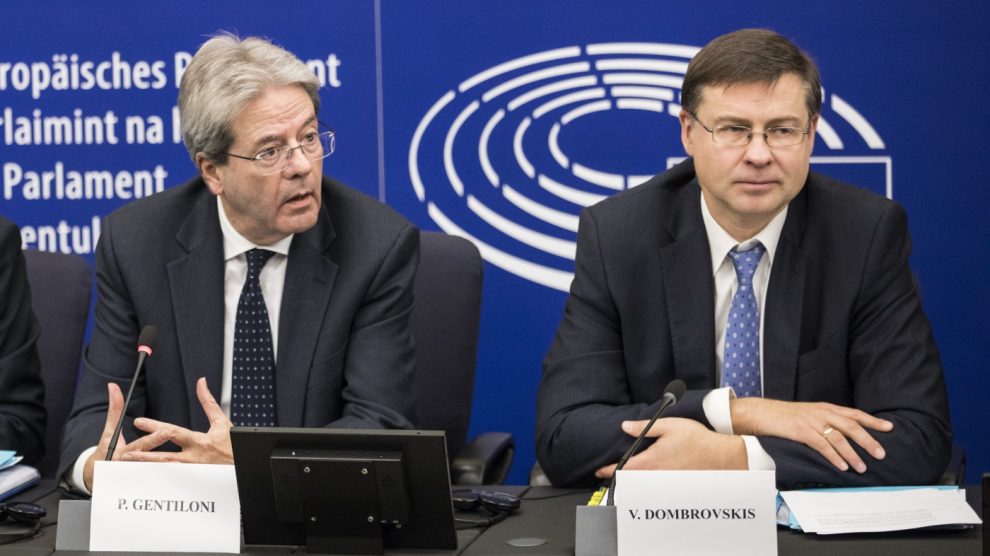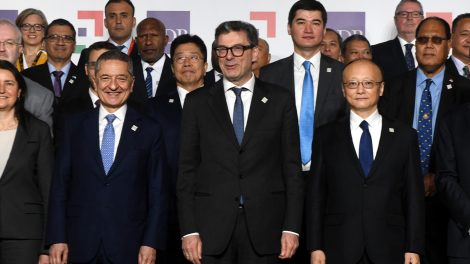Towards a new Stability Pact. The European Commission presented a new blueprint for the Stability and Growth Pact, which underpins the solidity of the EU’s economic union. This new version will overhaul the EU’s budget and debt control rules, which have been suspended until 2023 to give member States breathing room to tackle the effects of the pandemic and the Russian war in Ukraine.
- The reform bears the marks of former PM and former ECB head Mario Draghi, who has long advocated for it. European Commissioner Paolo Gentiloni, himself a former Italian PM, announced the proposal in June.
- Brussels believes consensus between member States on the new rules must be reached before they start drafting their 2024 budgets. Meaning: the aim is to have the new rules by mid-2023.
It’s quite a leap. The new version is similar to the post-pandemic Next Generation EU funds, inasmuch it’s based on commitments and concessions. It is inspired by the principles of “flexibility” and “simplicity,” which were also mentioned by Italy’s Giancarlo Giorgetti, who debuted in Brussels as the new Minister of the Economy on Monday.
From sticks to carrots. The renewed Stability Pact will do away with fiscal “punishments”, namely sanctioning a member State if it exceeds the set targets of 3% deficit/GDP ratio and 60% debt/GDP ratio when adopting the year’s budget. Instead, it will revert to a “tailor-made” adjustment path, negotiated by each individual State, taking into account its characteristics, problems, and commitments to reforms.
- Also, the time to enact changes will rise from one to four years minimum. Member States can extend that too, up to seven years, if they make commitments on reforms or targets compatible with the EU’s recommendations or priorities – such as green and digital transition.
- The European Commission, however, will verify the achievement of the targets every year.
- These measures will be especially beneficial to highly-indebted countries such as Greece (180% debt/GDP) and Italy (150%), provided they manage to agree and follow up on EU-approved targets, as their public expenditure will no longer be tied to strict, often self-harming reduction targets.
Simplification is key. Brussels also aims at decluttering bureaucratic processes. Firstly, the adjustment path for public accounts will no longer be linked to the structural deficit but to net primary expenditure. This will overcome many of the exceptions made to the old system, which was based on the output gap (the difference between actual and potential GDP).
- In the event of non-compliance with commitments, the excessive deficit procedure will be triggered automatically and the new sanctions will be much smaller: a few million instead of 0.2% of GDP, which was always threatened but never applied. The reformed version makes it more credible.
In the EU’s own words. “Much has changed since the Maastricht Treaty recognised the need for sound public finances and coordinated fiscal policies. EU countries now face significantly higher debt and deficit levels that vary widely. New challenges such as the green and digital transitions and energy supply issues will require us to make major reforms and investments for years to come. To address these needs, we are presenting a blueprint for simpler and more effective economic governance. Fiscal rules would focus on reducing debt where it is high, based on Member States’ own plans that must respect clear EU conditions. Once the plan is agreed, monitoring will be based on a simple expenditure rule, while stronger enforcement measures will ensure compliance. Today’s orientations will allow us to work together to reduce debt, strengthen our economies and build the base for our future prosperity and stability,” said Valdis Dombrovskis, Executive Vice-President for the Economy, at a presser on Wednesday.
Image copyright: European Union, 2022




